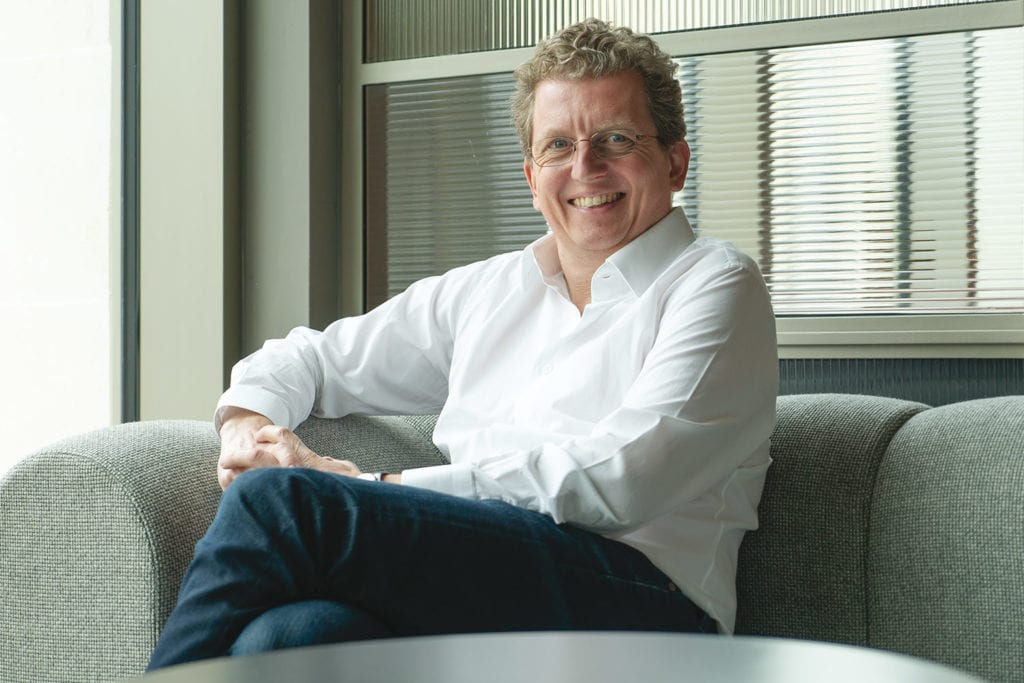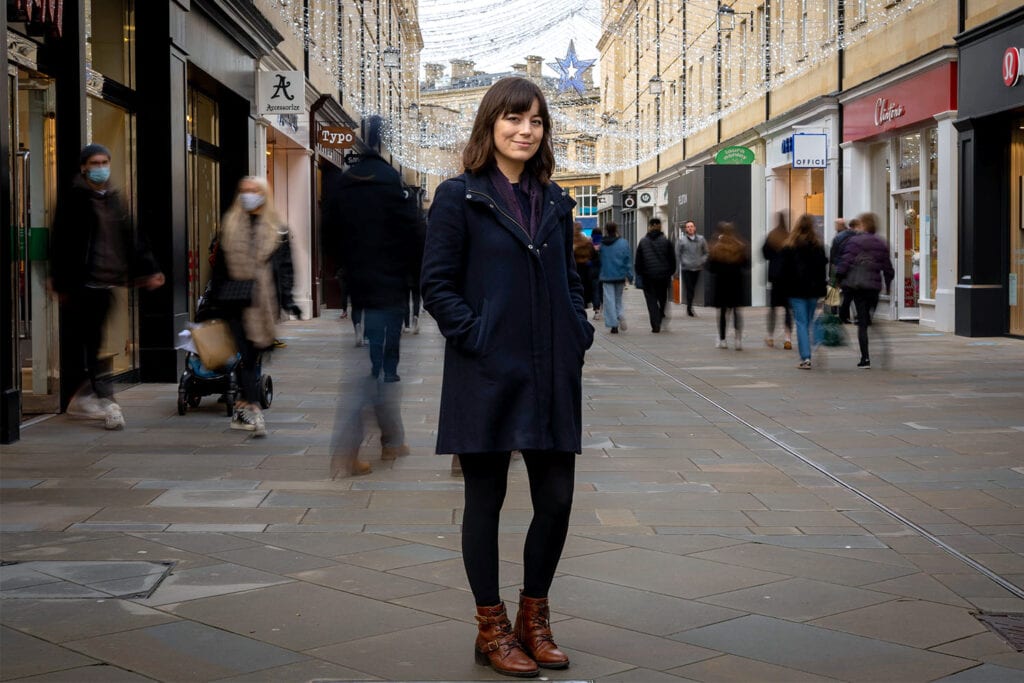
The UK has the lowest percentage of female engineering professionals in Europe, at less than 12%. Just 13% of engineers in the US are female.
The argument has always been that women don’t have access to STEM subjects, or they lack role models in the area. But is the real problem to do with how engineering is perceived? We talk to six female engineers to find out the truth about their roles, their responsibilities and what challenges they face.
Do you think that engineering has an image problem?
Ellie: Engineering is not really understood. A lot of people in the UK see engineering as fixing cars. Whereas in Europe and America, it’s seen as equivalent to a lawyer, so it has a very different status.
Heidi: I agree that there is a perception issue. There aren’t that many role models for young women to look up to. I think if women really understood the variety of roles you can have in an engineering firm, they would be really excited to join a firm like Buro Happold and solve some of the important issues that we’re tackling.
Paula: I have an architectural background, and in my study class we were much more than 50% women in the class, perhaps 70%. But the proportion of women that you see in the profession in the leading positions gets smaller. The five guys that we had in the class are now owners of companies and directors. But when it comes to women, they don’t disappear from the profession, but they don’t get the visibility.
Patti: I completely agree with Paula. My class was close to 50% women, but very few are still in our industry – and they aren’t stay at home mums. One is a lawyer, one is running an art supply company… they are finding success in other industries. I’ve seen many women get passed over for leadership opportunities and leave the engineering field. The glass ceiling is a significant barrier.
Farah: My engineering class was only three percent women. I’ve been working for over 15 years now, and the percentage of women, especially at mid-management level has always been very low. I ran my own MEP team in Southeast Asia, and it was 17 men and one woman. I agree with Heidi that there are not many visible role models. Engineers are either seen as someone who fixes your car or air conditioning, or he’s a middle-aged, white man with no hair!
Recently, I’ve been reading this book called How Women Rise. In it, they talk about the art of humble self-promotion. Men do a lot of self-promotion, which connects with Paula’s point – the three boys in her class are now directors of their own companies. The book states that women don’t verbalise their values, they feel it’s bragging.
Heidi: Paula, I’m an architect by training as well. When people refer to me as an engineer, I take it as a compliment. Talking to people in the US who teach university engineering programmes, engineering firms are increasingly going to be competing with big tech companies for talent. We really need to be shouting about our wonderful industry more.

How conscious are you of being a female engineer, as opposed to just an engineer?
Oyin: When I joined my team three years ago, I was the only female engineer, and I was very conscious about that in meetings, both external and internal. Usually, I was the only woman in there, and definitely the only woman of colour. But despite being very conscious of it, I don’t think it has necessarily affected my career so far. I have good line managers who always tried to bring me into the discussion as well.
Ellie: I think I’m most conscious when people ask me, so are you conscious that you’re a female engineer? In our team, it’s not 50/50 but it’s quite balanced. A lot of the architects I work with are female, but on site, it is usually quite male.
Farah: Can I say something? I never even think about it!
Heidi: I would say the same.
Farah: But when co-workers or clients say to me that I look colour-coordinated, like a designer, rather than an engineer, I really take a moment. I think they have this idea of an engineer as Einstein with crazy hair, rather than a woman who has coordinated her shoes and bag. It really surprises me when I go to schools to talk to young girls, and they say, oh, you’re so colourful, I thought you were some kind of a designer! When kids say something like that, it shows that there is a perception issue somewhere.
Heidi: Most of the time, I’m not thinking about it, but sometimes, I’m very aware of it. I’ve had sexist or inappropriate comments made to me when I’m the only woman in a roomful of 20 men. Sometimes, if there’s one other woman with me in a meeting, I’m almost even more aware of being a female engineer. Sometimes you’ll hear a woman say something, but then a few minutes later, you’ll hear a man say it, and people then listen to him, not the woman.
Things like that are constantly happening, which is really frustrating. I’m not very confrontational, which doesn’t help when a sexist comment is made. I do feel the other men in the room have a responsibility to stand up and say something. That needs to change. The silence is compliant and acts as agreement that that comment was okay. There was an interesting study where a woman learned to lower her voice in business situations. Afterwards, she was literally heard by the men in a different way.
Patti: Heidi is right, men also bear the responsibility to advocate for equity. We all need to speak up for under-represented groups if we want to achieve positive change.
Paula: In meetings, some women tend to be quiet and to maybe sit a little bit back, not quite at the table. Nowadays, when I have a meeting with a lot of men I make a point in wearing colourful clothing so that they see me. I’m not super extrovert, but I just want to be noticed.
Does that upset you? Having to act or dress in a way that you don’t normally dress, in order to be noticed?
Paula: No, I think it came more or less naturally, thanks to a job I took as an architectural student. I was supervising a small construction site for an engineering company. They hired me not because I was a woman or anything, but because I lived next door to the construction site. The site was very loud, and I realised that I needed to change my voice.
So instead of being “the nice quiet girl”, I created this stronger voice. I also noticed that if I wore a boot with higher heels, my posture was different, and I felt a little bit more respected. I was leading this construction site, and I had to be strong.
Farah: I totally understand what Heidi and Paula are talking about. That was my experience before I came to the Middle East. But when I came here, something shifted.
When I first had to go to a meeting, I was worried, as I had heard all these stories about women being submissive in this culture. I was in a meeting room full of Arabic men, and it was intimidating and extremely scary. I was the only women, and you know what I noticed? When I tried to say something, another male engineer cut me short. Instantly the Arabic person, the client, held his hand to the other guy and asked me to speak. That shifted the whole scenario.
In the Middle East, whenever I’m in a meeting, I’m so comfortable. I don’t have to prove anything, there is a built-in respect for women. If you’re the only women in the room, you will be respected more. If you want to say something, you will be heard first before anyone else. On construction sites, the construction workers are also extremely respectful; I’ve never, ever experienced this anywhere in my life.
Paula: How does it feel? Coming from a Western culture where you need to toughen up?
Farah: I feel so free. That extra pressure has gone. If I go to a site, I will be treated equally. My brain will be seen before my looks or my gender. I could never say that before.

Do you think things are getting better for female engineers?
Heidi: Change is happening more slowly than I would like. If you look at our younger staff, it is pretty balanced in terms of gender. I think we are doing above average there. But when you look at leadership, it does this (makes a triangle with her hands).
It’s much more complicated than just the maternity issue, there are a lot more nuances and unconscious biases. I don’t want women to be promoted just because there is a target that needs to be hit. The process needs to be much more engrained, looking at what we value and how we bring people up to Principle and Partner level, and really understanding what those barriers are.
Paula: In my old job I worked part-time. I worked 9-4. When I came to Buro Happold, I said in the interview, I only want to work part-time, is that okay? The HR lady told me to stop worrying, as Buro Happold was fine with that. Just because you have a child and work fewer hours, doesn’t mean that you can do less “brain” work – you can still do big things in fewer hours. There must be a very strong connection with HR if things are to get better for female engineers.
Patti: I think that’s a really great story. That makes me feel good about working here. But Heidi, I know in the US I know it is a little bit different, what do you think?
Heidi: When I started at Buro Happold about nine and a half years ago, I was actually pregnant with my second child when I started. I started at 32 hours a week, but this year, the head of our office came to me and said, you are providing more value than we are compensating you for. I want you to work full time so we can pay you what you are worth.
I’ve probably worked 40 hours a week for most of my career, so when my boss said that to me, I thought, oh, have I been doing myself a disservice this whole time? There’s this guilt that you are not working enough. Have I been under-compensated for almost a decade? Sorry, I’m going to get a little emotional…
Interviewer: It is tough, and we all do what we have to, to get through it. What about you Farah, I know you have a baby, how is it working for you?
Farah: Maternity leave here in the UAE is six or seven weeks. Then you can combine holidays and unpaid leave to extend it. What worked for me at the beginning was leaving the office by 3pm or 4pm but then logging in later that night. I really appreciated that flexibility with my team. I rearranged my work hours based on my baby’s sleep times.
What are the non-obvious things that men can do to make things better for female engineers?
Ellie: I think it depends. In internal meetings, I think it’s more about personality than gender. With external meetings and on site, I think some older male colleagues treat you like a “daughter” when maybe they should think of you as a “sister”.
With a sister, you’re able to argue with them and they’re your equal, right? When they treat you like a daughter, they are really protective, but somehow you’re kind of less than them, a bit smaller. Equally, some older guys totally respect you as an engineer and appreciate it is a bit harder to be there if you’re female. I think it does vary.
Patti: This is something I’ve been thinking about a lot, not just about men and women but about under-represented people in our industry. It took me a while to figure this out. Nobody is going to advance in their career without an advocate. It doesn’t really matter how good you are, if you don’t have somebody higher up that’s helping you progress through the ranks, it’s just not going to happen.
I think that one thing that men can do, or honestly, all of us can do to help make our profession more diverse, is to be proactive about mentoring people, particularly people that are under-represented. I think that’s really, really important.
Heidi: I totally agree, Patti just took the words right out of my mouth. One thing that men could do is think about who are they spending time with? Who are they reaching out to? Who are they having lunch with? Who are they inviting to events? They need to make sure that they’ve got a really good balance of contacts.
Paula: It’s not that we want men to do something for us. We want just to be together. It’s not only about women and men, it’s about everyone.

Our contributors

Eleanor Davies
Senior Structural Engineer Ellie has worked on a variety of international projects within the sport and entertainment sector.

Farah Naz
With 15 years of experience in the USA, UK and UAE, Head of Innovation Farah oversees all sustainability projects in the Dubai area.

Heidi Creighton
Based in Los Angeles, Associate Principal Heidi has worked in the green building industry for 15 years. She focuses on sustainability and wellness-focused design engineering.

Oyin Talabi
Oyin is an engineer based in our London Cities energy consultancy team. She specialises in district heating energy strategies and low carbon energy systems and technologies.

Patti Harburg-Petrich
Principal and US West Coast Aviation Lead Patti is passionate about community-centric work, adaptive reuse and seismic retrofit, sustainable design and aviation projects.

Paula Longato
With a background in architecture and urban planning, Paula is Head of Lighting Design at our Berlin office and has also worked in Brazil and the UK.












